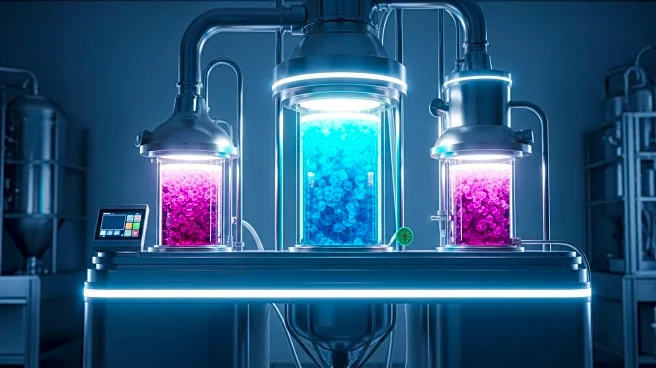What is the story about?
What's Happening?
Michroma, a startup specializing in natural color production through fermentation, has partnered with South Korean giant CJ CheilJedang to enhance commercial manufacturing capabilities. This strategic alliance aims to leverage CJ CheilJedang's biomanufacturing expertise to meet the growing demand for alternatives to synthetic dyes. Michroma's CEO, Ricky Cassini, highlights the benefits of this collaboration, including access to advanced production processes and regulatory compliance. The partnership focuses on producing heat- and pH-stable red pigments, with potential expansion into other color ranges. The initiative aligns with FDA plans to phase out synthetic dyes, emphasizing the need for sustainable and high-performance natural colorants.
Why It's Important?
The collaboration between Michroma and CJ CheilJedang represents a significant advancement in the food industry’s shift towards natural ingredients. As consumer demand for clean labels and sustainable products increases, the ability to produce stable and vibrant natural colors is crucial. This partnership not only addresses performance issues associated with plant-based dyes but also offers a solution to supply chain challenges. By utilizing fermentation technology, Michroma can provide consistent and scalable production, reducing reliance on agricultural resources. The move supports broader industry trends towards sustainability and innovation in food manufacturing.
What's Next?
Michroma plans to file a color additive petition in the U.S., aiming to expand its market presence. The partnership may lead to further collaborations with CJ CheilJedang's other business units, potentially integrating Michroma's ingredients into various food products. As the FDA targets synthetic dyes, the demand for natural alternatives is expected to grow, prompting further investment and research in fermentation-based color production. The industry may see increased competition among startups developing innovative solutions to meet consumer and regulatory demands.
Beyond the Headlines
The shift towards fermentation-based natural colors raises questions about labeling and consumer perception. As companies navigate regulatory frameworks, the ability to market products as free from synthetic dyes becomes a competitive advantage. The partnership also highlights the role of biotechnology in transforming traditional food production methods, potentially influencing future agricultural practices and sustainability initiatives. Long-term, the success of such collaborations could drive broader adoption of precision fermentation in various sectors, promoting environmental and economic benefits.
















